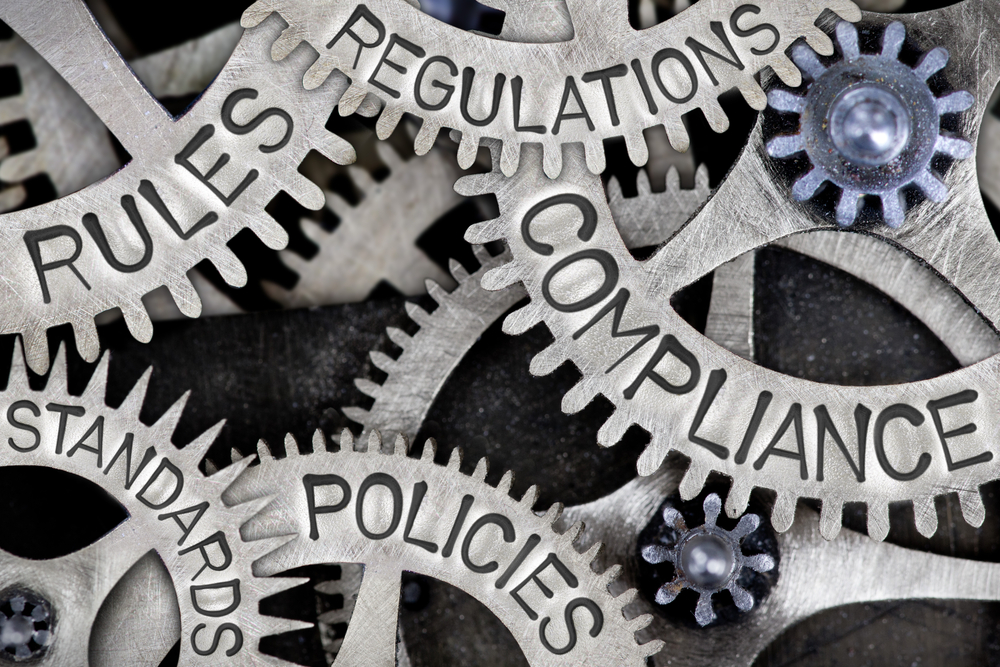BLOG
Understanding Ban the Box Law & Fair Chance Hiring

Tim Gordon
October 1 2024
The ban the box movement has transformed the hiring process for millions of job seekers. Ban the box legislation removes the criminal history checkbox from job applications. This change helps people get a fair chance at work, regardless of their past convictions.
But what is ban the box? How does it impact your business, and what do HR professionals need to know to remain compliant with the law?
What Is the Ban the Box Law?
The ban the box law is a series of criminal background check laws designed to prevent bias in hiring. These laws restrict employers from asking about a criminal record during the early stages of the hiring process. Instead, employers may only ask about criminal convictions after extending conditional job offers. This helps ensure they evaluate candidates on their qualifications, without the immediate influence of their criminal background.
The intent of a ban the box policy is to provide a more fair hiring experience. The law gives individuals with previous arrests and convictions an opportunity to present their qualifications and skills without immediate rejection due to their past criminal history. For many employers, implementing a ban the box policy is not just about compliance but also about fostering a more inclusive workplace.

HR's Essential Guide on Background Check Compliance
Individuals with criminal records are
more likely to remain unemployed (NELP)
$78 to 87 Billion
GDP loss due to barring ex-offenders from the workforce
(US Chamber of Commerce)
%
recidivism rate in Next Chapter’s ex-offender program (Inclusive Capitalism)
Why Does the Ban the Box Movement Matter?
The ban the box movement has grown rapidly since its origins in 1998. Originating in Hawaii, the movement’s goal is to remove barriers to employment for individuals with a criminal record. Today, ban the box legislation exists in over 35 states, impacting both public and private employers. These policies have been crucial in reducing recidivism, helping ex-offenders reintegrate into society, and promoting economic stability.
Studies have shown that when formerly incarcerated individuals are given a fair chance at employment, it positively impacts not only the individual but also their families, communities, the broader economy, and the company.. The U.S. Chamber of Commerce has been a strong advocate for second-chance hiring. In 2021, they published a report emphasizing that offering ex-offenders employment helps reduce recidivism, supports communities, and fills critical labor shortages.
Keep Reading: 3 updates to your disclosure forms to avoid hiring lawsuits
Expanding Fair Chance Hiring with Continuous Criminal Monitoring
Ban the box states want to protect ex-offenders by giving them fair job opportunities. However, some employers worry about company safety and need solutions to manage risk. That’s where continuous criminal monitoring helps. It allows companies to hire people with criminal records while keeping an eye out for new offenses after hiring.
Continuous criminal monitoring helps businesses meet fair chance hiring policies while keeping the workplace safe and following the rules. Monitoring sends an alert if an employee engages in new criminal activity. Employers can then make decisions based on how serious the offense is.
Using continuous criminal monitoring for this purpose empowers employers to comply with ban the box laws, offer people with criminal convictions second chances, and reach more job candidates while keeping safety measures in place. This approach is especially helpful in fields where security or customer safety is important, like healthcare, education, and retail.
Key Components of Ban the Box Laws and Compliance for Employers
To remain compliant with ban the box laws, employers must carefully manage how they collect and use an applicant’s criminal history. Below are the primary aspects that HR professionals should focus on:
Delayed Criminal Background Checks:
Under most ban the box legislation, employers cannot run employment background checks or inquire about a criminal record until after conditionally offering a job applicant employment.
Individualized Assessment:
If a criminal record is uncovered, employers are expected to conduct an individualized assessment. This means considering the nature of the offense, how long ago it occurred, and its relevance to the position before making a hiring decision. This step is critical to ensure that applicants are evaluated fairly and to avoid potentially discriminatory hiring practices.
Adverse Action:
If an employer decides not to hire a candidate based on their criminal background check, they must follow procedures outlined by the Fair Credit Reporting Act (FCRA). This includes providing a “pre-adverse action” notice and a copy of the candidate’s consumer report. This notice gives applicants the chance to dispute any errors in their report. Afterward, if the employer moves forward with the decision, they must issue a final adverse action notice. Additionally, many fair chance and ban the box laws have their own requirements for pre-adverse and adverse action.
Where Are Ban the Box Laws Enforced?
As of today, 35 states and 150+ cities/countries have adopted ban the box legislation.
While most ban the box laws apply to public sector jobs, many states and cities have extended these laws to cover private employers. Businesses of all sizes must adjust their hiring practices to comply.
For employers operating across multiple states, navigating the varying levels of compliance can be challenging. Many large corporations choose to adopt ban the box policies nationwide, regardless of state laws. This approach not only reduces legal risks but also promotes fair chance hiring across the board.
Keep Reading: What HR Professionals Should Know About the EEOC
A criminal record reduces the chance of a second interview by
%
(Second Chance Business Coalition)
1 in 3
Americans have an arrest or conviction record (NELP)
How to Ensure Compliance with Ban the Box Movement Laws
Ensuring compliance with ban the box can be complicated, especially for employers operating in multiple jurisdictions. However, businesses can take several steps to minimize risk:
Review Application Forms:
Applications should reflect ban the box legislation requirements. Ensure that all job applications remove questions regarding criminal convictions unless required by specific local laws.
Train HR Staff:
Teach hiring teams how to ask about criminal history while following ban the box laws. This includes understanding the appropriate timing for background checks and how to handle any criminal findings.
Consult Legal Counsel:
For larger organizations or those operating in multiple states, contact legal consultation. Working with a lawyer who knows employment law can help businesses keep up with laws enforced in their state. This ensures their hiring practices follow the rules.
Keep Reading: How Applicant Advocate Programs Protect People & Businesses
How InfoMart Supports Your Compliance Needs
While ban the box laws are critical for fair hiring, they also add a layer of complexity to criminal background check laws. Companies must stay up to date with evolving regulations to avoid fines and lawsuits. InfoMart, a leader in background screening, offers tools and resources to help businesses navigate these laws. Whether you need assistance with compliant employment background checks, continuous criminal monitoring, or individualized assessments, InfoMart has the expertise to support your business.
Read More: How your background screening partner should be keeping your data safe
About Tim Gordon
Tim Gordon, InfoMart’s Chief Compliance Officer, is a seasoned, knowledgeable professional in the background screening industry dedicated to driving InfoMart’s operations efficiently and profitably. Tim utilizes his extensive history in multiple positions across the company to oversee the processing of InfoMart’s core service offerings. He joined InfoMart in 2004; his tenure at InfoMart has been one of efficiency, communication, and continued innovation. With over a decade of experience running InfoMart’s compliance team, Tim is instrumental in proactively updating company regulations to keep InfoMart ahead of legislative changes. He previously sat on the Background Screening Credentialing Council with PBSA, where he helped oversee the accreditation program. Now, he serves as the Chair of the Professional Background Screening Association, where he helps steer the screening industry and shapes compliance initiatives globally.
About InfoMart
InfoMart has been revolutionizing the global background and identity screening industry for 30 years, providing businesses the information they need to make informed hiring decisions. They develop innovative technology that modernizes talent onboarding, including a first-to-market biometric identity authentication application and a verified sanctions search. The WBENC-certified company is a founding member of the Professional Background Screening Association, and they have achieved PBSA accreditation in recognition of their consistent business practices and commitment to compliance with the FCRA. The company is dedicated to customer service, speed, and accuracy, and it has been recognized for its success, workplace culture, and corporate citizenship with over 45 industry awards. To Get the Whole Story on InfoMart, please visit www.InfoMart-USA.com, follow @InfoMartUSA, or call (770) 984-2727.
